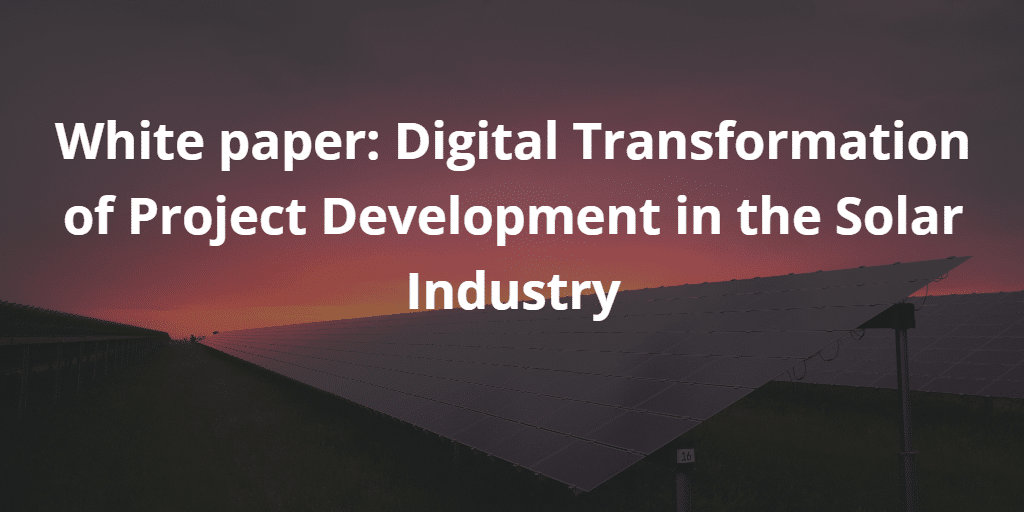Project development in the commercial solar space is a high-stakes operation. Its lengthy timelines, and multiple interdependencies throughout, means there are countless possibilities for siloed communication, leading to delays. Major solar companies, like SunPower, can have 300+ commercial solar projects a year, making project management a high priority for such organizations.
Because of this, the commercial solar industry is a perfect candidate for digital transformation – specifically, the implementation of an enterprise work management solution to help massive organizations navigate the path towards project completion and monetizing their assets.
Most utility-grade solar projects go through the following phases:
1. Origination
Includes investigation and review of land options, involving project team members, stakeholders, regulators
2.Plant/Commercial Design
In this phase, more team members are brought in as early project planning and plant design are completed, and financing is secured
3. Engineering, Procurement and Construction
The most intensive phase, at this point the project complexity is at its highest as time-sensitive tasks are distributed among team members who could be spread across different locations and time zones, not to mention external contractors and suppliers. Everyone involved needs to know where tasks are at in order to work on their own tasks
4. Operations and Management
To close the project and hand the solar plant over to the O&M team, they must be fully informed of details of the project including what was built, any issues that came up during the build, and relevant technical details
At any point throughout the above project, issues can occur for reasons that boil down to the following:
a) This highly complex process involves a massive number of tasks both big and small, all of which have to be prioritized, assigned and shared among project team members.
b) Getting thousands of employees / team members / external contractors on the same page, ensuring they have all the information when they need when they need them is a huge undertaking.
The consequences can vary from project delays, to rework and expense, and at worst, missed deadlines causing heavy fines. Companies already know that this can happen during project delivery, and often try to address these issues as they come up.
An enterprise work management system can help companies avoid these issues altogether by providing a platform for project management that is built to handle complex delivery, connecting everyone and updating status, data, and project information in real-time. It can act as a roadmap of sorts, helping project managers see potential roadblocks before they occur, and find ways to make sure they do not occur. The digital transformation of commercial solar project delivery helps break down silos, as well as enable ownership of tasks, both driving efficiency and avoiding chances for delays.
Leankor has prepared a white paper specifically for the commercial and utility-grade solar industry to learn more about how digital transformation helps companies address the pain points that come up at any time during project delivery.






